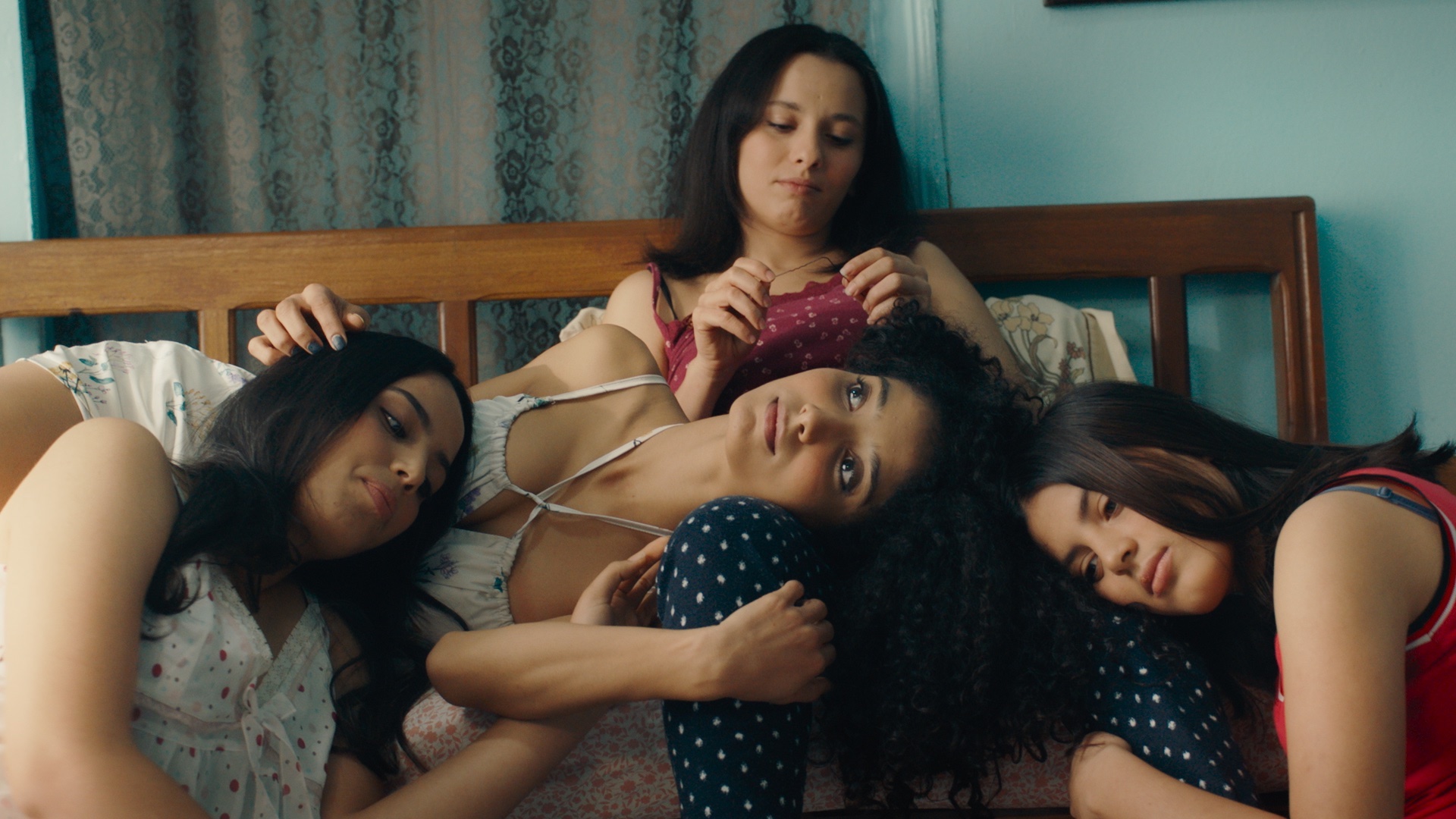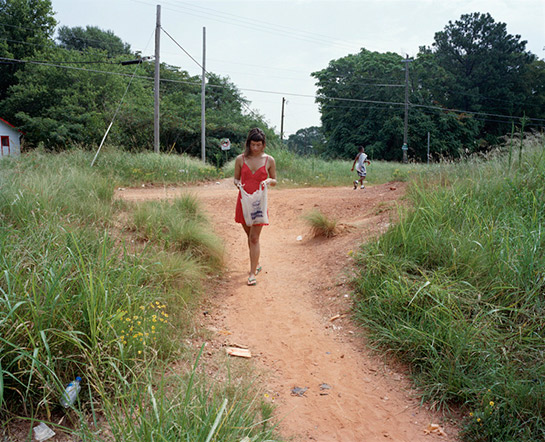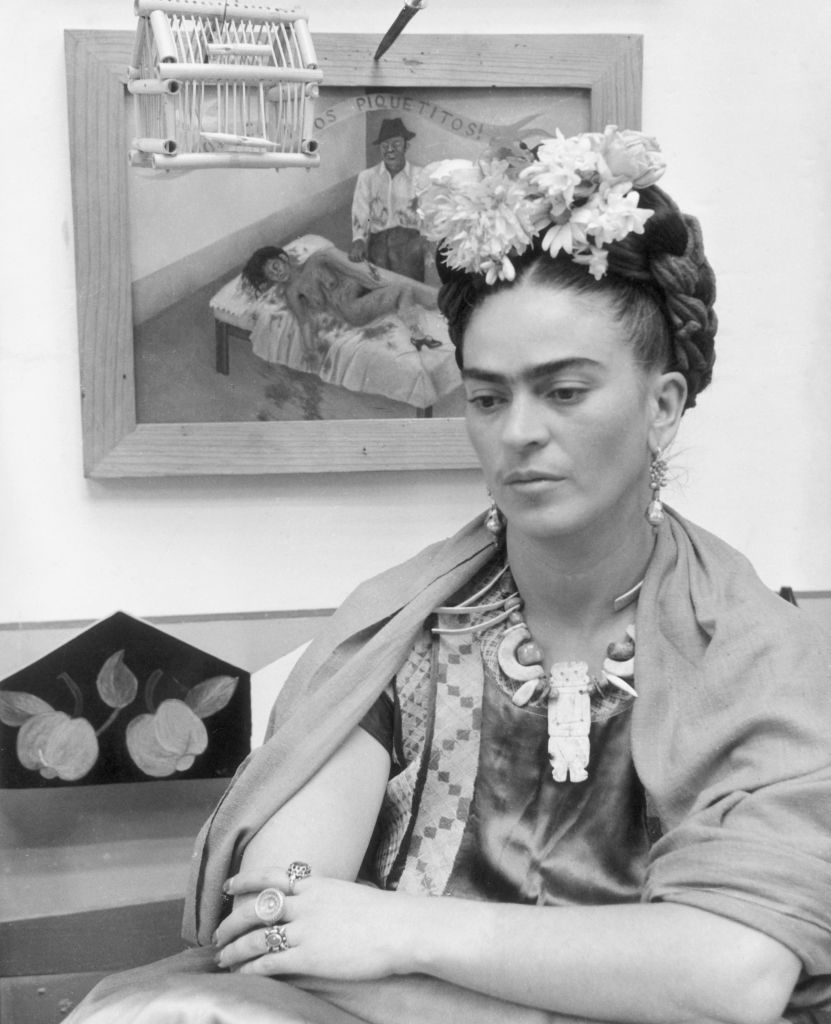“As actors, we learn to keep a certain distance,” Tunisian film star Hend Sabri assures Olfa Hamrouni, the middle-aged mother whose traumatic experience Sabri will soon be depicting onscreen. Olfa responds, “And what if you can’t?”
This question is at the crux of Four Daughters, Kaouther Ben Hania’s hybrid documentary that creatively reenacts the circumstances leading to the radicalization and disappearance of Olfa’s two eldest daughters, Ghofrane and Rahma, in the aftermath of the Tunisian revolution. Playing the missing women, actors Nour Karoui and Ichraq Matar join Eya and Tayssir, Olfa’s remaining daughters, to stage and examine the relationships within their own family. What leads two rebellious, ebullient young women to flee their homes and join a patriarchal terrorist organization? What psychic toll does their loss take on those left behind?
Nominated for an Oscar for Documentary Feature, Four Daughters is most overtly about the pain of losing a family member under the influence of religious extremists. But Ben Hania’s film is also about the cathartic possibilities of seizing one’s personal narrative — especially for women who have never had the chance to truly own their stories. “You will have to feel everything that I felt,” Olfa tells Sabri, “the suffering I endured, the pain of separation.”
As it turns out, Olfa has wrought all manner of suffering — specifically on her daughters, from false accusations of sexual promiscuity to beating one with a broomstick until it breaks. “I hate girls. I never wanted daughters,” she admits to the camera after sharing a story of narrowly escaping her own rape on her wedding night. Ben Hania confronts Olfa’s history as a verbally and physically abusive mother head on, taking care to hold her accountable without making her a villain. It is painful to see a mother who so fiercely loves her children also put them in harm’s way, exposing them to sexual violence after a new boyfriend moves in. “She said that it was our fault that she lost him,” Tayssir tearfully reflects after a particularly fraught reenactment. “But we’re the ones who are lost because of him.”
Between scenes portraying the daughters’ anguish are jolts of real joy. Eya and Tayssir laugh with their actor-sisters about putting on a maxi pad sticky-side up, and, with their mother’s gleeful participation, they restage a patriotic majorette march from middle school. The intimacy between the sisters and newcomers Nour and Ichraq suggests the solidarity that can blossom between women, even when the hardships they have endured vary wildly. As they pile on top of each other on a trundle bed, fondle each other’s hair, and finish each other’s verses during a sappy Arabic pop song, it’s easy to forget that the vibrant quartet are not actually blood kin, that the real Ghofrane and Rahma are in fact locked up in a Libyan prison for terrorist affiliation.
All this Ben Hania captures with a keen sense of compassion behind the lens. Olfa isn’t blamed for her daughters’ disappearance, but she’s not inculpable. When Sabri points out how much Olfa’s history of hurled epithets have hurt her girls, she is initially dismissive, saying, “It’s the legacy of several generations, a heritage.” By the end of the film, this “legacy” becomes, by Olfa’s own admission, a “curse,” one that will persist “until a generation breaks the chain.”
Inviting viewers to consider our own histories of misogyny — whether conscious or unwitting, expressed or internalized — Four Daughters blurs the distance between the personal and cultural, the individual and the systemic. Ben Hania is the first Arab woman to be nominated for two Academy Awards, and the first Arab filmmaker in history to be nominated in multiple categories — a sign perhaps that, ever so slowly, stories and voices long unacknowledged in Western media might finally be heard.

Four Daughters currently in select theaters nationwide.



